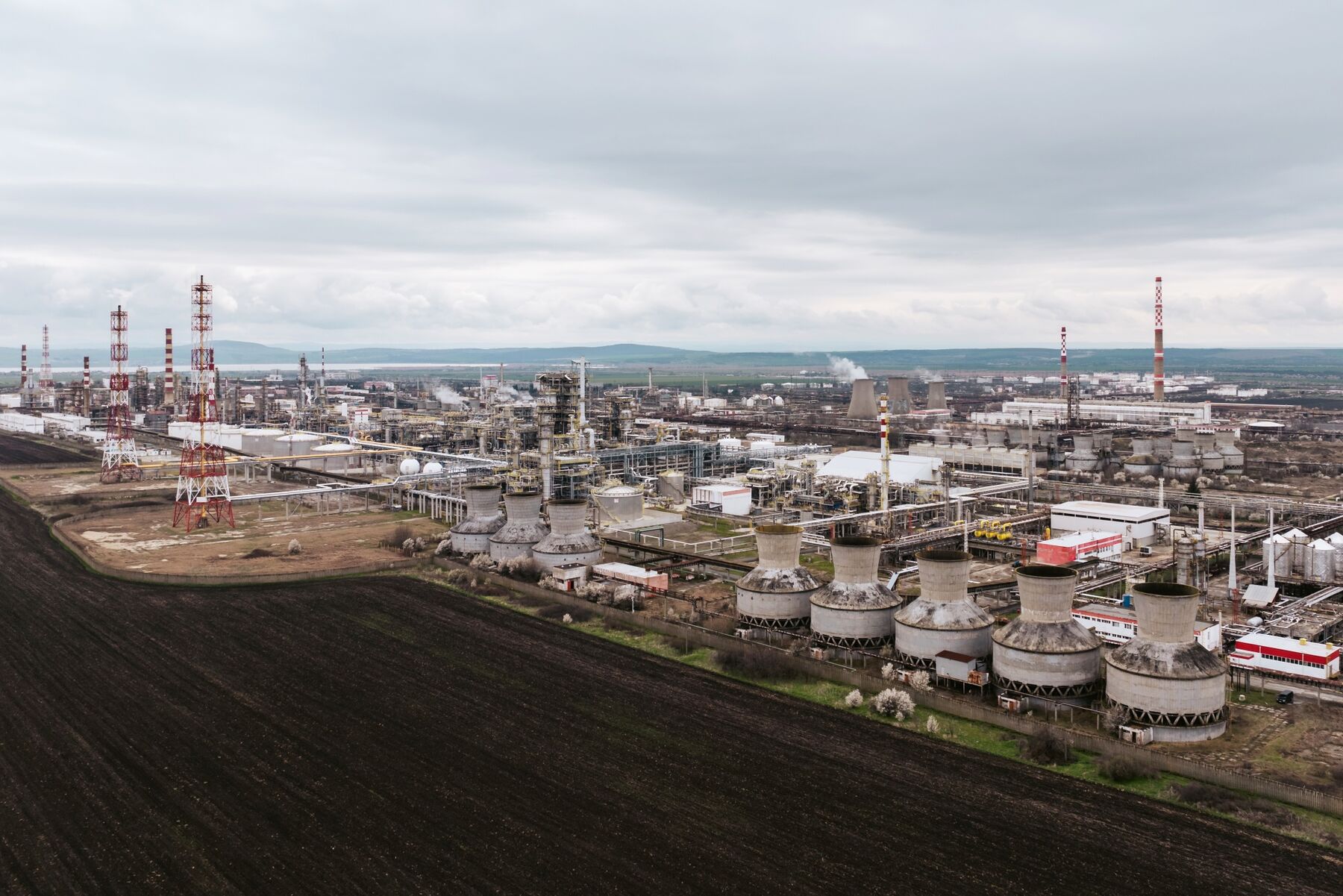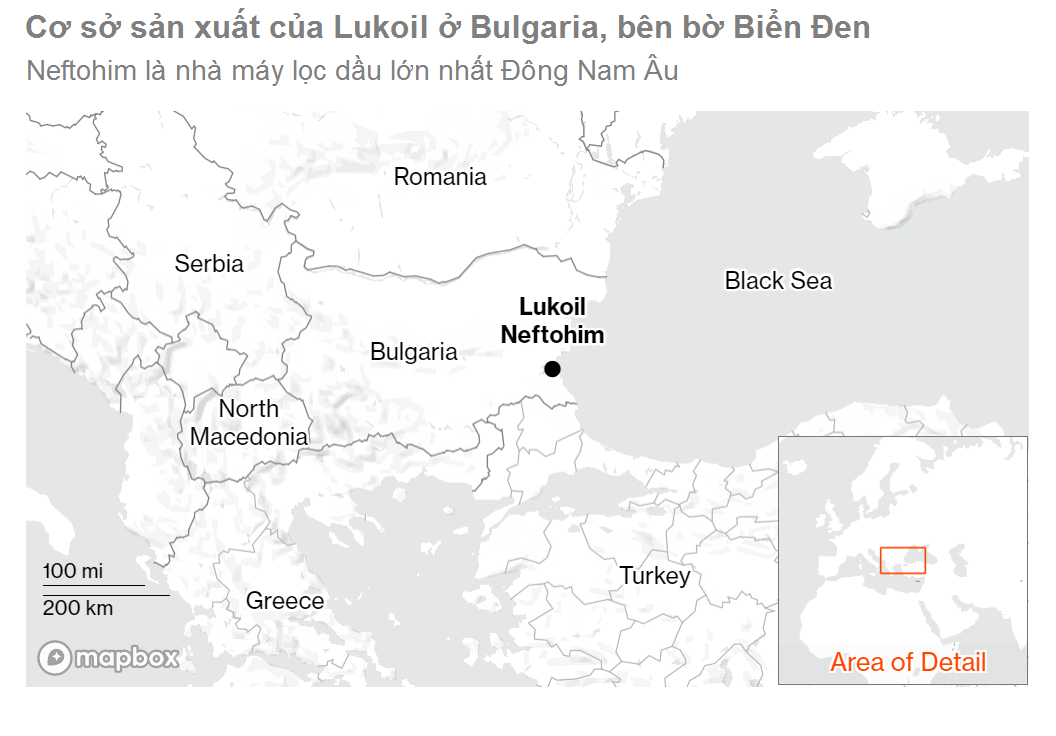Over the years, Russian companies have been buying up lucrative energy assets around the world, including in European countries. The European Union’s (EU) sanctions in response to Russia’s military campaign in Ukraine have restricted the operations of some Moscow-linked assets.
This is the situation at Russian oil giant Lukoil's Neftohim refinery in Bulgaria. Located in the Black Sea port city of Burgas, Neftohim is the largest and most modern refinery in Southeast Europe.
Technologically, it is a semi-complex refinery with a high yield of light and middle distillates (91%), therefore, the products have high profit margins. Neftohim has the ability to import and process various crude oils, but to optimize the facility's operations, the best feedstock is Urals crude from Russia or its equivalents, including oil from Iraq, Iran or Saudi Arabia.

Lukoil Neftohim Burgas, Southeast Europe's largest oil refinery, near the port of Burgas, Bulgaria, March 13, 2024. Photo: Bloomberg
Under pressure from sanctions, Russian oil is no longer allowed to flow into the Burgas refinery. The Bulgarian government has taken a series of actions targeting Lukoil's flagship refinery in the EU member state.
First, in September last year, Sofia revoked the 35-year license granted to Lukoil in 2011 for operational control of the Rosenets oil terminal. Under the new rules, the terminal can still be operated by Lukoil but must pay a special fee to Bulgaria.
Second, a 60% tax will be imposed on refinery profits. Third, a ban will be imposed on the export of liquid fuels produced at the Burgas refinery from crude oil of Russian origin. This will take effect from January 1.
Finally, the exemption period for seaborne crude oil imports from Russia has been shortened from December 31, 2024 to February 29, 2024. This means that Russian oil has been “banned” in Bulgaria since March 1, 2024.
In this context, Lukoil announced that it is considering selling the Neftohim refinery and other assets in Bulgaria. At the same time, the Russian energy giant is also looking for alternative oil sources, such as KEBCO oil from Kazakhstan, which has physical and chemical properties identical to Russia's Urals oil.

Most recently, Lukoil is likely transporting crude oil from Norway to its refinery in Burgas, Trade Winds, a website owned by the Nordic country's DN Media Group, reported earlier this week.
Two Aframax vessels (80,000-120,000 deadweight tonnage tankers) were believed to have headed to the Neftohim plant last month, Trade Winds said on May 6, citing S&P Global's Commodities at Sea market intelligence service.
Oil imports from the Johan Sverdrup field in the North Sea to the Neftohim refinery in Burgas reached more than 1 million barrels last month, according to S&P Global sources. Two Aframax vessels carrying a total of about 550,000 barrels of oil were delivered to the 190,000-barrel-per-day plant.
These are the first shipments from Johan Sverdrup, the third-largest oil field on the Norwegian continental shelf operated by energy giant Equinor, to the Russian plant since last December and the largest monthly volume ever to arrive at the Black Sea refinery.
Lukoil's website says the Neftohim refinery in Burgas exports products to the United States, North Africa, the Mediterranean and Asia. The refinery once produced 100,000 barrels of Russian Urals oil per day.
Lukoil has not commented on the report. The company has said it is considering selling the Burgas refinery as part of a strategic review of its operations in Bulgaria due to “biased, unfair political decisions . ”
Minh Duc (According to Trade Winds, Institute of Central Europe/IES)
Source: https://www.nguoiduatin.vn/ga-khong-lo-lukoil-nga-co-dong-thai-moi-voi-nha-may-loc-dau-o-bulgaria-a663051.html


































































































Comment (0)